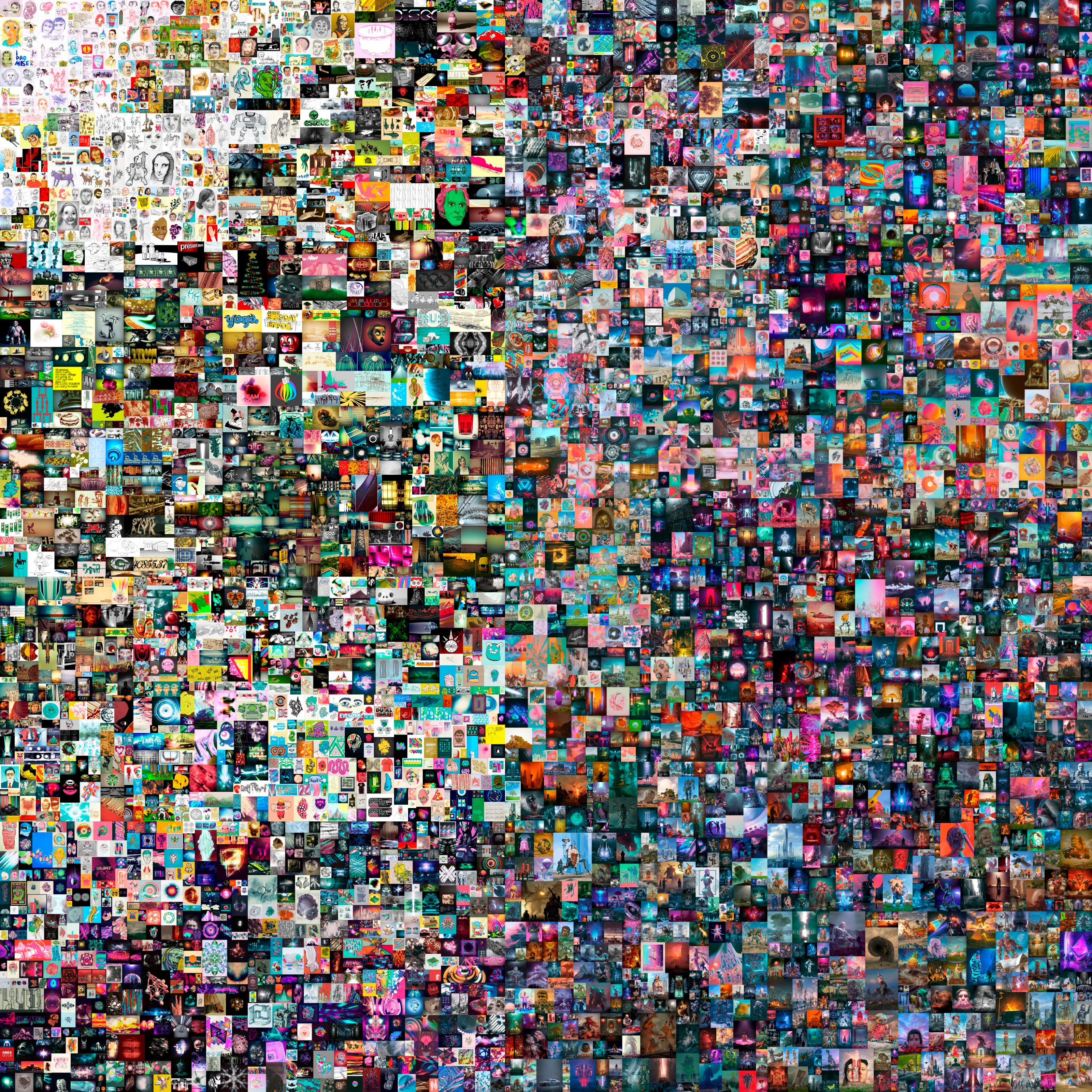After years in "Crypto Winter", cryptocurrency has once again taken the world by storm with coins such as Bitcoin and Ethereum skyrocketing, creating sudden and extreme wealth for many individuals. Many of those who benefited from the recent boom, as well as many others that don't want to miss out on potential earnings, are now looking to diversify their holdings. Enter, NFTs.
Interested In Cryptocurrency? Check out all related items on NETBOOKLET here.
What is an NFT?
Simply put, a non-fungible token (NFT) is some data stored on a blockchain, that certifies some transaction to be unique and the object of the transaction as authentic. Dollar bills, common stock shares and other commodities are all examples of fungible goods, as you can trade one for many others that are identical. Bear with us, it'll all start coming together soon. Now let's look at some examples of non-fungible goods
Suppose Cristiano Ronaldo (CR7) wanted to sell a particular pair of game-worn cleats. These would certainly be unique. A buyer would purchase an NFT giving him or her sole ownership of that pair of cleats, and CR7 would be required to live up to the promise and transfer the agreed upon item.
Equivalently, a seller could list an NFT on an item such as a trading card or book, each of which can have many copies existing in the world. This is where things get a little fuzzy. It's starting to seem like NFTs are just a typical transaction, like buying something on your credit card and later seeing it show up on your statement, but there's a reason why people are excited by this revelation.
If you're not at all familiar with the concept of a blockchain, it's probably a good idea to read the 'What Is Blockchain & Mining' section just below before you continue reading this. The hype around NFTs comes from them being a convenient way of purchasing real (or digital) goods in a decentralized way. Simply put, goods are finally being exchanged using cryptocurrencies. These transactions do not go through the banking system, instead they are stored on a decentralized ledger, which is the backbone of cryptocurreny as a whole. Bitcoin being the canonical example.
What Is Blockchain & Mining
A blockchain is a digital ledger (list of transactions) that is distributed across many computers around the world. No single entity has control over this ledger, and it is currently impossible to corrupt based on its design and use of encryption. You've probably heard a lot of folks mining bitcoin and/or even massive bitcoin farms. Sparing all technical details, these bitcoin miners support the network, verifying transactions before they are written onto the ledger, getting rewarded in the process. Of course as many currencies are being introduced, this workflow can vary from currency (coin) to currency.
NFT Perception & Potential
Currently, the NFT community is trying to establish NFTs as a new frontier for fine art collectibles, with a focus on digital art, and it seems to be working. There is a great deal of hype around NFTs which may be partly residual from the recent crypto boom. Many collectors argue they hope to see exponential growth and ROI on their collection by the end of the year, while others argue that NFTs will likely lose a majority of their value soon, particularly if the speculated impending crypto winter strikes soon. No one knows for sure, but time always tells. One thing we know for sure is that some NFTs are selling for unimaginable numbers, even in the posh world of fine art.
Our advice is, if you decide to collect NFTs, please do so with money you've already mentally said hasta la vista to.
NFTs provide an exciting opportunity for (digital) artists in particular, but it's not all sunshine and rainbows (skip to second to last section for more).
$69 Million Sale - What You're Really Reading This Article For
Beeple, a graphic designer who had ever only sold his prints for a couple hundred bucks, partnered with Christie's auction house to sell the piece of digital art visible below. He was able to leverage his massive social following and sold the NFT for a whopping - wait for it - $69M USD. This piece is a 5000 image collage - a culmination of almost 14 years of work in which he created a piece of digital artwork each day.
To read more about this mind-boggling story, click here.
How To: NFT Transactions
Collectors:
1) Sign up for an NFT platform (see 'NFT Platforms')
2) Connect your digital wallet (the platform will provide instructions)
3) Bid on auctioned works or buy outright for a preset price.
Sellers:
1) Sign up for an NFT platform (see 'NFT Platforms')
2) Connect your digital wallet (the platform will provide instructions)
3) The tricky part: Qualifying to sell on the platform. This is not required for all platforms.
4) Create NFT post on platform
5) List & auction. This is where most fees are paid.
NFT Platforms
If you know of any alternative platforms, please comment down below or contact us.
Pros: NO GAS FEES*
Pros: Various coins, items beyond digital art, no seller entrance requirements
Cons: More options means a more complex UI
Pros: Simple UI, various coins, no seller entrance requirements
Cons: Purely digital art
Pros: Beautiful UI, well organized art discovery. Items beyond digital art coming soon.
Cons: Need a certain amount of upvotes to be able to sell. Ethereum only. Requires Twitter verification.
This Sounds Awesome!! I'm Going All In.
Let's take a quick breath, shall we?
Those who have benefited most from the popularity of NFTs are artists, such as Beeple, and other notable figures that have taken to developing digital art, having built followings over long periods of time. NFTs are highly speculative, but not completely speculative. As with conventional art, an artist with some street cred is generally paid more for their NFTs.
Small-scale artists face many challenges in listing NFTs, despite one of the fundamental ideas behind decentralization being inclusivity. Platforms employ exclusive invite systems and other techniques to limit the number of artists on the platform as well as grow themselves.
Another major concern among artists are fees. Listing an NFT can be a pretty expensive process between commissions, platform fees, gas fees, and external currency conversion fees.
Gas Fee: Transaction fees paying for the work done to get the NFT on the blockchain. These fees are common throughout the crypto world and fluctuate based on transaction traffic.
> Let's draw out an example. Assuming you have no cryptocurrency holdings currently, you will be required to convert real money into a specific coin (fee), pay a gas fee, pay some combination of service and commission fees, potentially pay a fee for the transfer of your earnings into your digital wallet, and then if you want to cash out to real money pay another fee on that transaction. That's potentially up to 6 fees! Some sellers have claimed that they netted less than 25% of the total revenue of the sale of their work. That's less than Apple's commission on other developer's app store app sales!

All the negativity out of the way, if you're really into the idea of NFTs and have a following, there really is potential to make lots of money. Even if you do not have a following, it's worth checking out a couple of platforms and seeing what you think. There typically isn't a fee for signing onto a platform.
And That's The Bottom Line
NFT collectors are hoping that digital art will be the future of fine art collections. They are pegging massive amounts of currency on the hopes that their collections will appreciate in value over time. While we may be slightly skeptical of this speculation, as the whole concept may have just simply been born out of the current crypto craze, we have definitely seen crazier things happen.
Many artists have made good sums of money selling NFTs, but no money is free. High fees and potentially little return can lead to wasted time and frustration. Small-scale artists also have to work their way around exclusivity and other obstacles to list their artwork.
At the end of the day, NFT marketplaces best serve folks that want to support good artwork in a decentralized manner, taking the focus off of earnings and ROI altogether.
If you do decide to speculate using your hard earned money, please do it responsibly!
Before you go, leave a comment if you found this article informative! If you believe there are any errors, please leave comment with a correction or reach out to us :)
Connect with us: https://linktr.ee/netbooklet
At NETBOOKLET, we believe that a great product should be allowed to make its mark on the world. We're here to help merchants, manufacturers, designers, and anyone else who builds cool things showcase their products so that you, the reader, are easily able to connect with products that you'll love. To see more, head on over to www.netbooklet.com


Omg! I have been researching about NFT recently. I wish I could be famous like the artist 👩🎨
ReplyDeleteSince we’re all about crypto at present, we advise going for the crypto bonus if you’re after a extra important provide. Despite having a on line casino, Bovada is primarily famous for sports activities betting, with the site’s sportsbook that includes roughly 30 sports activities from all over the the} globe. With 35 Bitcoin roulette games, there’s no threat of getting bored anytime quickly. Here, you’ll discover 카지노사이트 tons of variations of American, European, and French roulette. BitStarz is our primary crypto roulette website, due to its huge number of 35 roulette games and crypto-first nature.
ReplyDelete